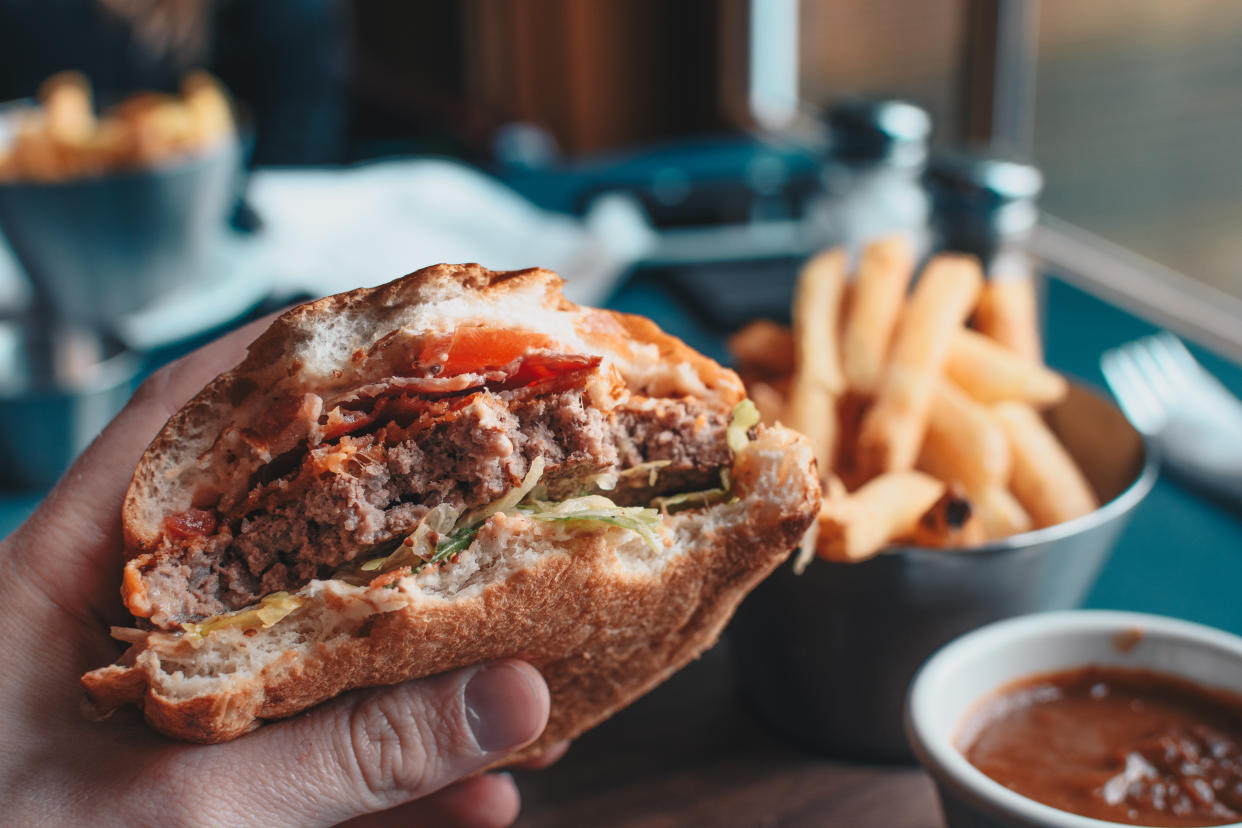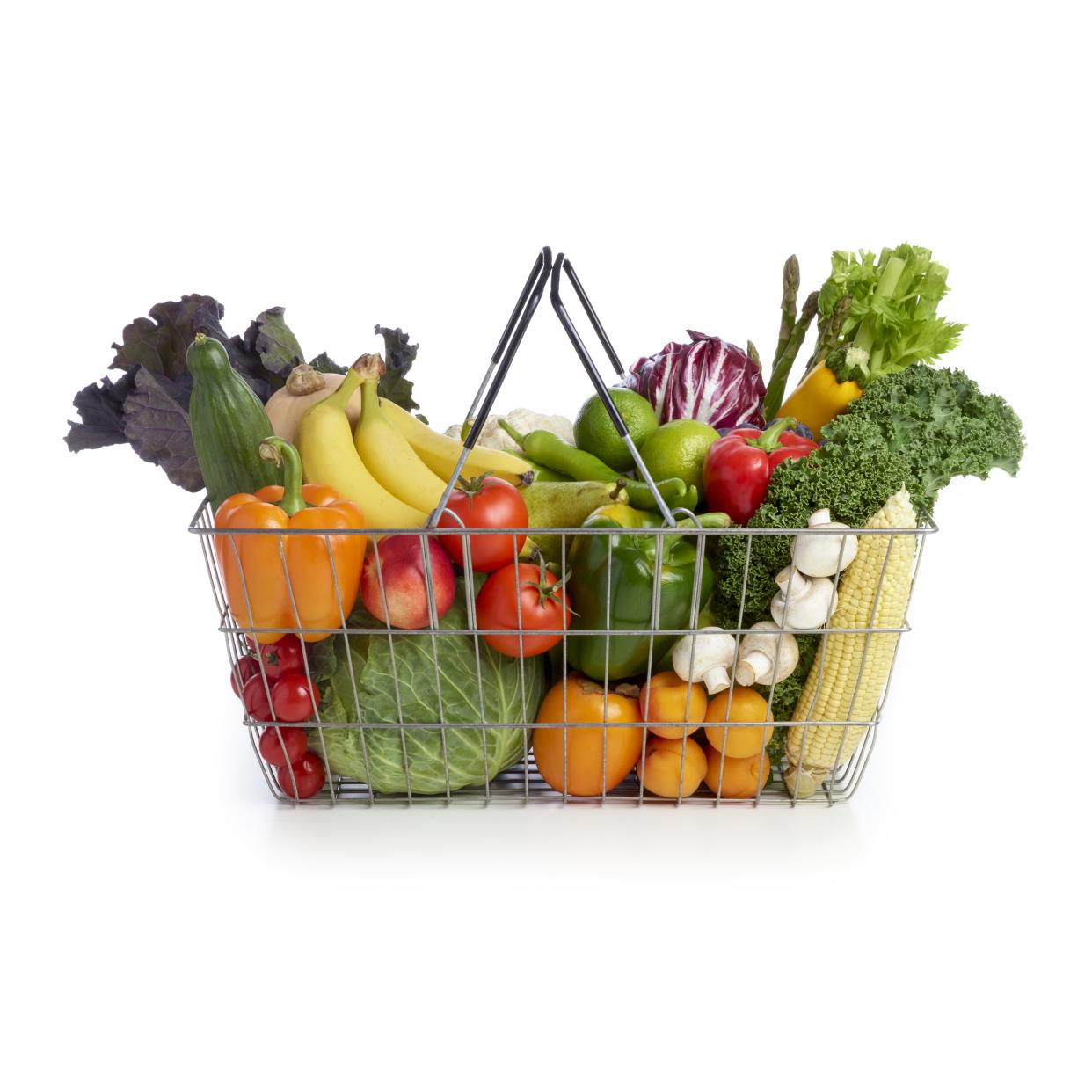Report warns of fears of junk food Britain after Brexit

The government is being warned of the risk that Brexit hurts the poorest hardest, driving them to seek out the cheapest food which is likely to be less heathy.
A hard-hitting report looking at food security when the UK leaves the EU warns that low income consumers will be hit hardest from any disruption to the supply of food and claims that the government will suspend food safety controls on imports to avoid delays at ports.
The report by the Food Research Collaboration calls for a change in policy towards food security and highlights that food banks are now a way of life for many Britons.
Professor Tim Lang, one of the four authors of the report, told Yahoo Finance: “Britain already has a terrible class divide in what’s eaten.”
The supply of food after 29 March 2019 has increasingly become an issue in recent days with reports that the government is planning to stockpile food. The new Brexit minister Dominic Raab on Sunday refused to deny reports the government is planning to stockpile food or create lorry parks on motorways if there is a hard Brexit.
Almost half of the food that arrives in the UK is imported and 60% of that comes from the EU through a food supply chain than operates on a “just in time” basis. The British Retail Consortium calculates that about 10,000 containers of food come into the UK from the EU daily, among the 3.6m containers that pass through the UK’s ports each year.
“If border checks rose to four minutes, there would be 20-mile or so (possibly even 29-mile) lorry tail-backs within a day, hence the fall-back, we presume, of suspending food controls to allow all traffic to be waved through. This is not ‘taking back control’, it is abandoning it,” the FRC report said.
The FRC report spells out that low-income consumers have already been hit by Brexit as a result of higher prices caused by the drop in the value of the pound after the referendum. It warns of the risk that the situation deteriorates.
“British eating patterns are socially polarised and increasingly so. We are not romanticising the pre-EU UK diet. UK food was famous for being brown, over-cooked and plain,” the report added.
It cited research showing the UK diet had the highest proportion of ultra-processed food (high in fat, salt and sugar) consumption in 1998-2011 across 19 EU countries.
The authors – Lang, who is professor of food policy at City, University of London, Erik Millstone, emeritus professor of science policy, at University of Sussex, Tony Lewis, head of policy at the Chartered Institute of Environmental Health and Terry Marsden, Professor of environmental planning at Cardiff University – are concerned that any relaxation in advertising standards or food standards after Brexit would exacerbate the situation. They note the NHS already spends £16bn on treating the impact of overeating.
“Brexit must not be an opportunity for deregulation that would encourage a ‘permanently eating’ culture,” the report said.

Those on low incomes will be hurt most from increase in prices as food “is a flexible item in household expenditure and income is a major determinant of health”.
The FRC report does not mention the possibly of rationing food to cope with distribution to supplies after Brexit but Lang said that it might be one way to make the supply more equitable.
The government has been approached for comment.
A House of Lords report earlier this year also warned about the impact on the low income families. “The government’s stated post-Brexit objectives, both that food and farming should be exemplars of high-quality production and the the UK’s trade strategy should seek lower prices for consumers, risk exacerbating existing differences in food consumption,” the House of Lords report said.
“Those who can afford it will be able to buy high-quality local produce. Those who cannot afford that option may well base their diets on cheaper, imported food, that witnesses were concerned could be produced to lower standards to keep costs down,” the House of Lords reported added.
Consultants at Oliver Wyman have also concluded that the poorest households would be hit hardest as they spend a higher proportion of their income on food.
The FRC report noted that a the food system – based on a three-to- five day, ‘just-in-time’ logistics and delivery system – could break down in less than week in the event of a hard Brexit.
The BRC wrote to Theresa May the EU’s chief Brexit negotiator Michel Barnier earlier this month to warn about the implications of a no-deal Brexit to warn about the implications of a hard Brexit which would lead to customs controls and tariffs.
“It is likely we will see food rotting at ports, reducing the choice and quality of what is available to consumers,” the BRC said letter said. Food prices will go up as the cost of importing form the EU will increase by up to 29% from non-tarriff barriers alone, the BRC said.
The trade body provided an example of salad leaves. These can be picked and loaded onto lorries in Spain on a Monday, delivered to UK stores on a Thursday and still have five days shelf life That would change after the Brexit.
Ian Wright, chief executive of the Food and Drink Federation, said the UK was not going to run out of food or drink in the event of a hard Brexit. But, he said: “This is about choice, availability and price, it’s not about the return of rationing.”
Citrus fruits could be imported from counties such as South Africa rather than Spain, for instance.
If the government did find it needed to stockpile food, it might need to take emergency powers, Wright said. During the 2000 fuel blockades, Tony Blair’s government took powers to get fuel to essential industries.
Neither the BRC or FDF had been put on notice that stockpiling measures were needed.

The report by the FRC considers whether the UK could seek supplies from non-EU countries, particularly the US.
“For the USA to replace the combined food imports from the other nine of the top 10 would require a vast food flotilla and logistics operation, exceeding that of the 1940-45 Atlantic Convoys,” the report said.


